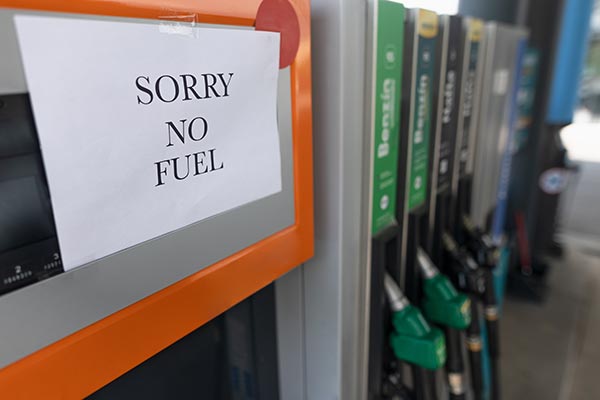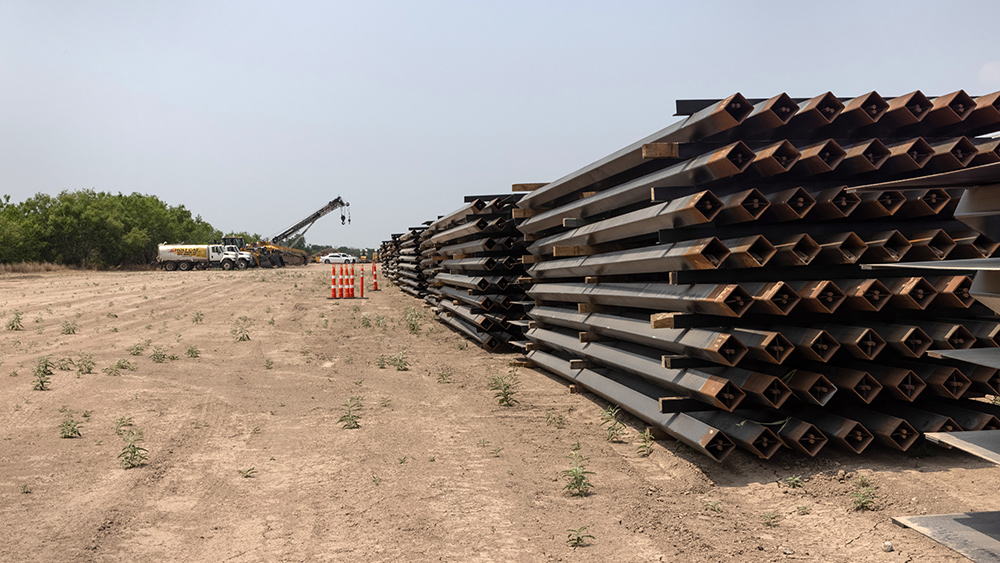Central banks are the main source of instability in the world – and their collapse is NECESSARY
11/07/2022 / By Arsenio Toledo

The world’s central banks having the ability to gamify the world of finance is the main source of instability in the world’s markets. This is according to financial expert Charles Hugh Smith of Berkeley, California, writing on his blog “Of Two Minds.”
Smith noted that the world needs to figure out how to rein in the ability of central banks to hand money freely to “financiers and cronies.” This, he wrote, is the first step to unseating bank finance as the dominant force in global markets. (Related: Central banks continue adding gold to their net holdings as fears rise of a global currency collapse.)
“Either power is taken from central banks or the vast inequality that is the result of central bank dominance will unravel the entire system,” he wrote. As proof, he noted how inequality is growing not just in the United States but also around the world.
In the U.S., the top 10 percent own nearly 71 percent of all wealth in the country. Globally, the world’s top 10 percent owns around $85.6 trillion in wealth. The world’s top 50 to 90 percent own less than half that – $34.8 trillion – and the world’s bottom 50 percent own just a fraction – $2.5 trillion.
“Vast inequality is the norm everywhere because the central bank system is everywhere,” wrote Smith.
Central banks are already collapsing
Some of the world’s biggest central banks are already showing signs of collapse.
In September, it was reported that the Reserve Bank of Australia had its equity wiped out by losses suffered due to bond buying.
From Nov. 2020 to Feb. 2022, the bank accumulated AU$44.9 billion ($29.02 billion) worth of bonds. The value of these bonds was all but wiped out. The losses eclipsed the bank’s underlying earnings on the bonds, worth AU$8.2 billion ($5.3 billion). This left the bank with an accounting loss of AU$36.7 billion ($23.72 billion).
The only reason the bank hasn’t already become insolvent, officials noted, is its ability to print more money.
In the United Kingdom, the Bank of England recently had to intervene to bail out billions of pounds worth of pension schemes, whose payouts relied on the British bond market retaining significant value.
It isn’t clear yet how much money the Bank of England poured into making sure these bonds retained their value, but the country’s liability-driven investment market, where most pension schemes put their money in, is worth approximately 1.6 trillion pounds ($1.82 trillion).
Tuomas Malinen, CEO and chief economist for Finnish macroeconomic consulting firm GnS Economics, noted that pension funds are often considered very dull investments because of their risk-averse profile. If these relatively safe investments are being threatened, “it can happen to any other financial institution.”
As Smith noted, the many troubles central banks all over the world are experiencing is proof that they are a failure and will soon be replaced.
“The era of all-powerful central banks is over for a simple reason: They failed,” he wrote. “They failed their citizens, their nations and they failed the world. Their policies have pushed wealth and income inequality to extremes that have destabilized the planet’s social, political, economic and environmental spheres.”
Learn more about the coming financial disaster at MarketCrash.news.
Watch this episode of the “Health Ranger Report” as Mike Adams, the Health Ranger, discusses how the Federal Reserve is actively trying to collapse the European Central Bank.
This video is from the Health Ranger Report channel on Brighteon.com.
More related stories:
Australia’s central bank may aggressively increase interest rates as inflation hits 32-year high.
European Central Bank head warns of darkening outlook for the continent, raising recession fears.
Central banks are willing to destroy the global economy if it means saving the stock market.
Sources include:
Submit a correction >>
Tagged Under:
bank collapse, banking, bubble, central bank, central bank collapse, chaos, Charles Hugh Smith, collapse, debt bomb, debt collapse, economic collapse, economics, economy, finance, financial crash, inequality, market crash, money supply, panic, pension, risk
This article may contain statements that reflect the opinion of the author
RECENT NEWS & ARTICLES
COPYRIGHT © 2022 EconomicRiot.com
All content posted on this site is protected under Free Speech. EconomicRiot.com is not responsible for content written by contributing authors. The information on this site is provided for educational and entertainment purposes only. It is not intended as a substitute for professional advice of any kind. EconomicRiot.com assumes no responsibility for the use or misuse of this material. All trademarks, registered trademarks and service marks mentioned on this site are the property of their respective owners.




















